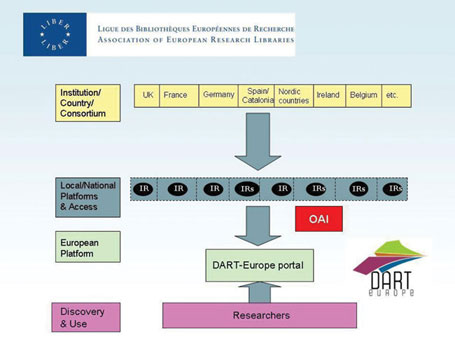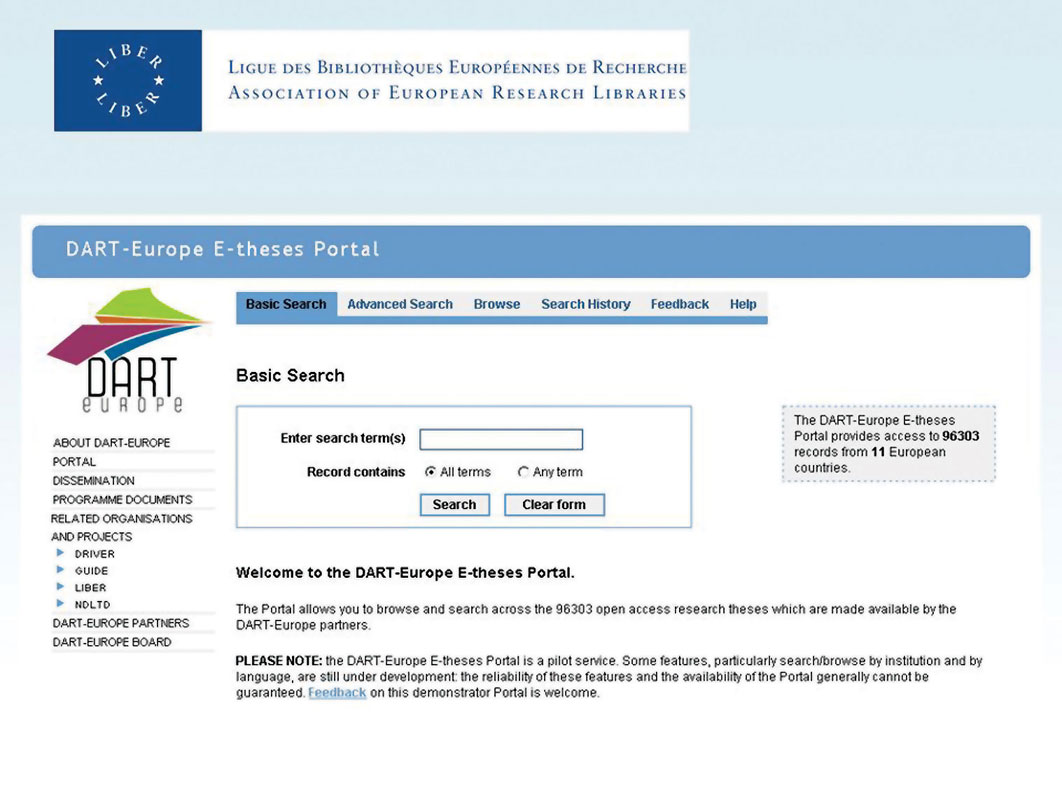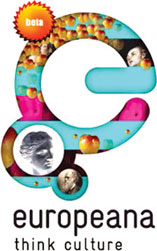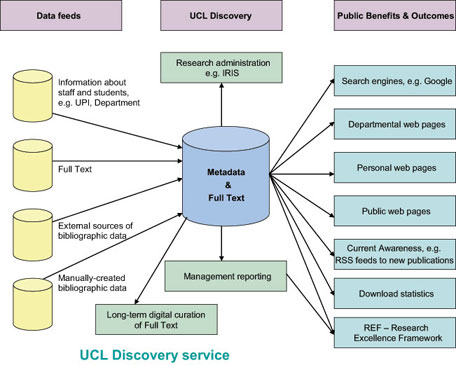Working towards Open Access
This paper presents an overview of ways in which LIBER (Association of European Research Libraries) and its members are working towards embedding Open Access approaches to the dissemination of research outputs. It does this in three ways — by looking at current debates in which LIBER has become interested, on the economics of Open Access; by highlighting new projects in which LIBER is engaged, to develop new models and services via Open Access; and by looking at a model of best practice amongst LIBER members for developing an institutional Open Access mandate. The paper ends by drawing conclusions about the vitality of the work of LIBER member libraries in the Open Access landscape.
The purpose of this paper is to give an overview, as of 1 January 2011, of the work of European research libraries in the field of Open Access to research outputs. An earlier version of this paper was given at the 56° Congresso Nazionale AIB in Florence, 3–5 November 2010 (Accesso aperto alla conoscenza: Accesso libero alla biblioteca). It was also promised at the International Conference organised by the National Documentation Centre/NHRF, 16–17 December 2010, at the National Hellenic Research Foundation in Athens (Open Access: Research, Education, Public Data). Due to unforeseen commitments in London, I was not able to give the presentation in person in Athens. I am extremely grateful to Astrid van Wesenbeeck, SPARC Europe Director, for giving my presentation as well as her own at this important southern European meeting.
This paper will touch on a number of issues which affect European research libraries, as seen by LIBER (Association of European Research Libraries). This is significant because LIBER is the main research libraries network in Europe. Founded in 1971 as a non-governmental organisation of research libraries under the auspices of the Council of Europe, LIBER encompasses more than 400 national, university and other libraries in 45 countries. The network is not, however, restricted to the European Union and the participation of research libraries outside the European Union is widely encouraged.
This paper will address some issues around the economics of Open Access, as these issues were widely discussed at the LIBER Annual Conference in Aarhus, Denmark, in 2010.[1] The paper will then go on to look at three practical implementations of Open Access in LIBER libraries — the DART-Europe E-Theses portal, the new EU-funded Europeana Libraries project, and the UCL (University College London) Open Access mandate. A number of generic conclusions will be drawn from the discussion, which will paint a picture of the current development of Open Access policies, strategies and approaches by European research libraries.
In June 2009, a study was completed by Professor John Houghton for the Knowledge Exchange, which compared the benefits of Open Access in the UK, the Netherlands and Denmark.[2] In the three national studies, the costs and benefits of scholarly communication were compared, each based on three different publication models. Modelling revealed that the greatest advantage would be offered by the Open Access model. Adopting this model, according to Houghton, could lead to annual savings of around:
-
70 million in Denmark
-
133 million in The Netherlands
-
480 million in the UK.
Houghton also concludes that, even if the cost saving for Open Access was zero, increased returns on Research and Development alone would justify a move to Open Access. Houghton suggests this is worth £172 million increased annual returns on public (government and academic) research in the UK.
Professor Houghton’s findings and methodology have been fiercely criticised by publishers, particularly in the UK.[3] The discussion is complex, with many individual points debated. The way forward adopted here is to examine three exemplar points. The three points are:
-
Houghton’s and Oppenheim’s methodology
-
savings in, and impacts on, the library budget
-
access to research literature.
This article will then propose a way to take the debate forward.
One of the criticisms made of Professor Houghton’s work is that he has used faulty methodology to arrive at his conclusions. However, Professor Danny Quah, Head of Economics at the London School of Economics, who sat on the study steering group, noted:
‘The report addresses an important and difficult problem, and is clearly the result of a lot of very careful thinking about the issues. The methodology is sound and the analysis is extremely detailed and transparent. The multi-stage model of production that is used is complex, and does require calibration according to a large number of parameters, many of which are necessarily estimates, where possible taken from published sources or the wider literature. If demonstrably better estimates become available then these could improve that calibration still further. The report represents the best evidence so far on the questions it addresses.’[4]
This seems to be a fair comment on the work that has been undertaken to date. It may not be the case that the methodology is faulty, but that the data which feed the models is incomplete. When better data become available, they can be used to refine the results obtained from the model. This is quite different from saying that the model is fundamentally wrong. Professor Houghton has developed a dynamic model of his scholarly communications workflow, which is available for use.[5]
The second point which this article will address is the issue of savings in, and impacts on, the library budget. Steve Hall has asked the following question: ‘Where are savings to come from? They will be made from current library expenditure (2007), resulting in some cases in greater savings than the amounts currently being spent.’[6]
The primary question addressed in the Houghton/Oppenheim report is the cost-effectiveness of the alternative models at the overall system level, loosely, at the level of the UK economy. Once answered by the report, many stakeholder groups understandably want to ask a secondary question, which is about the cost implications for them. These are two quite different questions. Hall’s statement ‘They must be set against UK university library spending in 2007’ is wrong. To do so addresses a quite different question, namely the question ‘what is in it for me?’, in this case for research libraries and research institutions.[7] The Houghton report looks at system-wide savings in the whole scholarly communications process. It is wrong to ascribe any savings simply to library budgets. The savings identified in the Houghton report are system-wide in the whole scholarly communications chain.
The third question which this paper considers, is access to research literature. Steve Hall says: ‘The fact is, the report’s authors have failed to show that there is any real gap between the access that researchers have today to the scientific literature that they need and that which they might have under an open access model.’[8] Hall feels that Houghton and those who support Open Access, have created a problem — access to research literature — which does not exist. According to Hall, there is no problem about access to research literature. However, other reports and statements on the subject suggest otherwise.
‘…access to research information content issues must be addressed if the UK research community is to operate effectively, producing high-quality research that has a wider social and economic impact.’
‘The report’s key finding is that access is still a major concern for researchers. Although researchers report having no problems finding content in this age of electronic information, gaining access is another matter due to the complexity of licensing arrangements, restrictions placed on researchers accessing content outside of their own institution and the laws protecting public and private sector information.’[9]
These two statements are realistic assessments of the current state of access to research literature. There is a problem with access to research information, and this is a direct consequence of the current (commercial) models which prevail for dissemination. Finding content is not a problem, but accessing it is. This is precisely the problem which Open Access is designed to address.
Where should the debate on economics go from here? Most challenges to the Houghton report are against the inputs rather than against the models themselves, which Houghton-Oppenheim developed: the business processes/lifecycle by Bo-Christer Björk and the Solow-Swan growth model for economic growth.
However, the issue may not be that Open Access is cheaper than the subscription model. Should we not look at the potential of a new scholarly communications system, based on the use of public funds, to transform itself into a completely new system? In this light, the Houghton report is not the last word, but the start of an invigorating debate.
In an Open Access world, it may not be (as some commentators suppose) that current market forces will continue as now. Open Access could allow the return to an older idea, that of the Invisible College. New technology has expanded the potential of this approach. Such potential would allow for significant expansion of the Björk scholarly communication lifecycle model, as developed by Houghton and Oppenheim.[10]
The best outcome of the current debate would be to move beyond arguments about the veracity of data used in the cost-benefit analysis, to consideration of new and differently located forms of public investment in the development of new knowledge systems.
The DART-Europe portal,[11] which is supported by LIBER, is the principal gateway for access to Open Access European research theses. As of 1 January 2011, there are 190,178 full-text theses indexed in the portal from 300 universities in 19 countries.
Each institution or regional/national consortium places the full-text of their research theses, permissions allowing, into an institutional repository. Using the OAI-PMH protocol for metadata harvesting, DART-Europe harvests the metadata (but not the full-text) for each thesis into the portal, where the data are normalised. This portal is available for searching by the end-user, who is taken from the metadata in the portal to the ‘splash page’ for that thesis on the host server on the local/national platform. Clicking the link on that page will then bring up the full-text of the thesis, usually as a pdf (Figure 1; Figure 2; Figure 3).

Figure 1: Architecture for DART-Europe.

Figure 2: DART-Europe Home Page.

Figure 3: From metadata to full-text.
Research theses can only gain more visibility when available in electronic format, preferably in Open Access. This is good for research and good for the researcher.
DART-Europe is now a target for the SFX link resolver, making the portal an important part of the global information infrastructure.
The preferred mode of working is for DART-Europe to work with national aggregators: it is important that national research can be seen alongside other European research.
The currently represented in the portal are listed in Table 1.
Table 1: Country representation in the DART-Europe portal.
| Belgium | Lithuania |
| Cyprus | Netherlands |
| Estonia | Norway |
| Finland | Poland |
| France | Portugal |
| Germany | Spain |
| Greece | Sweden |
| Hungary | Switzerland |
| Ireland | UK |
| Italy |
LIBER feels that the DART-Europe portal is an important development in making cutting-edge European research from European universities available to a global audience — this is a service which is being offered to a global community by European research libraries.
Europeana Libraries is a new LIBER project which has been successfully submitted for funding to the European Commission. This
bid was submitted to the ICT PSP fourth call for proposals 2010 for a Best Practice Network. The ICT PSP Objective identifier
is 2.2 Enhancing/aggregating content for Europeana (Figure 4).

Figure 4
-
represent the first project to offer digital collections where the text will be fully searchable in Europeana, making it possible to search inside books and other materials;
-
establish systems and processes capable of ingesting and indexing significant quantities of digitised material, including text, images, moving images and sound clips;
-
create a service which will be fully capable of extension to other libraries across Europe, including the rest of the LIBER[13] and CERL[14] membership — over 400 libraries in over 40 countries across Europe.
The first content from European research libraries to be made available in Europeana was material from the Europeana Travel project.[15] This project formally started on 1 May 2009 and will run for two years. Its aim is to digitise content on the themes of travel and tourism from European national and research libraries and to make that material available via Europeana. Europeana Libraries builds on the success of Europeana Travel. Europeana Libraries is not a digitisation project, however. Rather, the project has identified materials in European university and research libraries which are already in digital form. It aims to index that material (including a pilot to index the full-text of selected monographs), making the resources available via Europeana (Table 2).
Table 2: Overview of content to be indexed in Europeana
| Pages | Images | Books/Theses |
| 3,319,045 | 848,078 | 598,130 |
| Film/Video Clips | Mixed content | Articles |
| 1,200 | 34,000 | 368,000 |
| Total content to be indexed in Europeana | ||
| 5,168,453 units of material | pages / images / books+ theses / AV | |
Open Access content is well represented in this list, e.g., all Open Access research theses in DART-Europe and all articles indexed in the Directory of Open Access Journals. There are a number of benefits which will accrue as a result of the project:
-
Researchers, teachers and learners have to look in just one place.
-
Full-text will be indexed in Europeana.
-
It is a scaleable solution which can be available to all European research libraries.
The Europeana Libraries project has started formally on 26–27 January 2011.
One of the ways of embedding Open Access at an institutional level is to create an institutional mandate for the deposit of materials, copyright permissions allowing, into the institutional repository. It is comparatively rare for institutions to develop mandates.[16] However, UCL (University College London) has done so and has enshrined its Open Access mandate into a formal UCL Publications Policy,[17] which has been agreed by the UCL Academic Board (the UCL Senate).
UCL Academic Board in May 2009 agreed two principles to underpin UCL’s publication activity and to support its scholarly mission:
-
That, copyright permissions allowing, a copy of all research outputs should be deposited in the UCL repository in Open Access
-
That individual UCL academic researchers should be directly responsible for providing and maintaining details of their publications in relevant UCL databases so as to support both Open Access and the requirement for UCL to keep an accurate record of its research outputs
UCL Discovery, a service sponsored by the UCL Publications Board, has been introduced to support the UCL Open Access mandate. UCL Discovery showcases UCL’s research publications, giving access to journal articles, book chapters, conference proceedings, digital web resources, theses and much more, from all UCL disciplines. Where copyright permissions allow, a full copy of each research publication is directly available from UCL Discovery.
The Publications Policy underlines the benefits which this approach brings:
-
to UCL researchers:
-
UCL Discovery provides each researcher with a central hub for a comprehensive personal record of his/her outputs, which is easy to maintain and keep up-to-date
-
Ability to make publications data and links to full-text available via departmental or personal webpages
-
Download statistics, available to UCL researchers, reportable by publication, by researcher, or by academic unit. Public reports will be periodically published through the repository website
-
UCL Discovery will serve the Professorial Appraisal Review (PAR) System with publications data
-
Customisable reports can be used to support documents such as a curriculum vitae, promotion submission or grant submission
-
Long-term storage and preservation of all deposited documents
-
UCL Discovery will provide article- and author-level bibliometric measures, such as citation counts and the h-index
-
The maintenance of a complete and accurate record of UCL research will support UCL’s management reporting and preparation for external research assessment exercises
-
-
to external communities:
-
The automatic exposure of UCL research outputs to Google, Google Scholar and other search engines
-
Current awareness services, such as customisable RSS feeds, to alert interested parties to new UCL research publications
-
The supply of publications data to other aggregators
-
Bibliometric and publications data from UCL Discovery will be used for UCL management reporting in support of research assessment
-
The deposit of Open Access full text has been directly linked to the recording of bibliographic information about UCL publications in the associated Research Publications database (RPS) and is a seamless activity.
An architectural overview of the UCL Discovery service appears in Figure 5. The system is fed automatically by the import of data from external suppliers — both metadata and full-text — where the requisite permissions allow. Personal information about staff and researchers comes from relevant UCL databases. The metadata and full-text sit in UCL Discovery, which can be interrogated by anyone with an Internet connection, as it is an Open Access system. UCL Discovery also feeds other UCL systems and the materials it contains are the subject of long-term digital curation activity in UCL Library Services.

Figure 5: UCL discovery service.
The practical outcomes for the UCL research community are also illustrated in Figure 5. These are:
-
Retrievability of UCL research outputs via search engines such as Google
-
Ability to surface materials stored in UCL Discovery in Departmental web pages / personal web pages / public web pages
-
Current Awareness services – e.g. RSS feeds to new publications
-
Download statistics
-
Support for the REF (Research Excellence Framework) — an national activity in the UK to measure the quality of university research, which determines levels of funding to universities to support their research activity
The mandate at UCL is not a top-down mandate from the University administration to staff and researchers. Rather it is a policy, agreed by academics and researchers themselves, which asks the university to undertake certain actions on their behalf in order to help ensure the maximum visibility to UCL research outputs.
This paper shows that European research libraries are active in the Open Access landscape. Discussions at the LIBER Annual Conference in Aarhus in 2010 have stimulated LIBER to look in more detail at the current debate about the economics of Open Access. LIBER is also developing Open Access services to support the European researcher. DART-Europe, funded entirely by resources from member libraries, has developed as the principal gateway to European research theses, giving new researchers greater visibility at an early stage in their research careers. Europeana Libraries, building on the success of Europeana Travel, will index over 5,000,000 digital objects from European research libraries into Europeana. The objective of this activity is to create a one-stop shop for users who wish to access and use materials which form part of Europe’s cultural heritage. Open Access materials are well represented in this offering. UCL (University College London) has developed an Open Access mandate, endorsed and accepted by its academics and researchers, for the deposit (copyright permissions allowing) of materials into the institutional Open Access repository.
In summary, European universities and their libraries are:
-
engaged in global debate about the economics of Open Access;
-
rolling out sustainable services, using Open Access protocols, which bring greater visibility to European research;
-
creating pan-European partnerships, with innovative project funding, to develop cutting-edge projects to support the European user;
-
developing models of good practice to embed Open Access policies into institutional policy frameworks.
|
For the main contributions to this debate, see the following literature:
|
|
|
Hall, S. (2009): Widening access to research information: collaborative efforts towards transitions in scholarly communications, Paper presented at the Berlin 7 Open Access Conference, Paris, 2 December 2009. Available at http://www.berlin7.org/spip.php?article57. |
|
|
John Houghton and Charles Oppenheim, Widening access to research information: A response. Available at http://www.cfses.com/EIc-ASPM/Cocccmments-on-Hall%28Houghton&Oppenheim%29.pdf. |
|
|
Hall, S. (2009): Widening access to research information: collaborative efforts towards transitions in scholarly communications, p. 18. Paper presented at the Berlin 7 Open Access Conference, Paris, 2 December 2009. Available at http://www.berlin7.org/spip.php?article57. |
|
|
See Overcoming barriers: access to research information content, Research Information Network, London, 2009. Available at a href="http://www.rin.ac.uk/system/files/attachments/Sarah/Overcoming-barriers-report-Dec09_0.pdf" target="_blank">http://www.rin.ac.uk/system/files/attachments/Sarah/Overcoming-barriers-report-Dec09_0.pdf; Friend, F.J. (2007): UK Access to UK Research, in Serials, vol. 20 (3), pp. 231–34. Available at http://eprints.ucl.ac.uk/4842/. |
|
|
See Hall, M. (2010): Minerva’s owl. A response to John Houghton and Charles Oppenheim’s ‘The economic implications of alternative publishing models’, Prometheus, 28(1), 61–71. Available at http://dx.doi.org/10.1080/08109021003676375. |
|